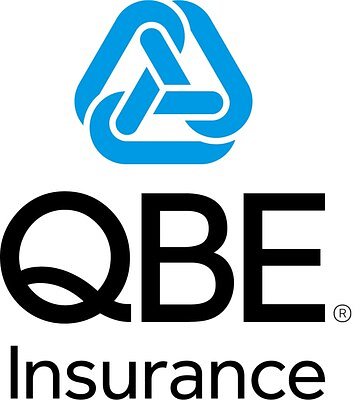
Data-Driven Coastlines: Startup Tackles Erosion with AI-Powered Insights
A new tech solution is empowering communities to fight back against accelerating coastal erosion, providing vital data for smarter preservation and adaptation strategies.
Data-Driven Coastlines: Startup Tackles Erosion with AI-Powered Insights
By Margaret Mitchell
Coastal erosion is increasingly threatening communities across the United States, impacting everything from property values and infrastructure to delicate ecosystems. Now, a tech startup is bringing AI-powered analytics to the forefront of coastal management, offering communities a powerful new tool to understand, mitigate, and adapt to this growing crisis.
QBE, a global insurance leader, recently named RCOAST the grand prize winner of its 2025 AcceliCITY Resilience Challenge, recognizing the potential of its technology to revolutionize coastal preservation. But the recognition is just the beginning. RCOAST’s platform offers high-resolution 3D mapping, aerial imagery analysis, and predictive modeling designed to give coastal managers the data they need to make informed decisions.
The Rising Tide of Erosion – and the Need for Smarter Solutions
Coastal erosion is a natural process, but its pace is accelerating due to climate change, sea level rise, and human activity. The Gulf Coast, barrier islands in the Southeast, and even the Great Lakes are experiencing significant land loss. The problem isn’t merely aesthetic; it’s an economic and ecological threat. Annually, coastal erosion results in approximately $500 million in property losses, with federal agencies allocating around $150 million each year for beach nourishment and similar control measures.
“We’re seeing erosion rates increase dramatically in many areas,” said a coastal engineer working with a Gulf Coast municipality. “Traditional methods of assessment are often slow and lack the granularity we need to effectively target interventions.”
RCOAST’s technology addresses this gap by providing detailed, up-to-date information on coastal change. The platform's 3D maps and aerial imagery allow managers to identify vulnerable areas, assess the impact of storms, and monitor the effectiveness of mitigation efforts.
QBE's Commitment to Resilience – and the AcceliCITY Challenge
QBE’s involvement highlights a growing trend: the increasing recognition of the need for proactive resilience measures. The AcceliCITY Resilience Challenge, a global competition for innovative urban solutions, has become a key part of QBE’s strategy to address climate change and support sustainable communities.
“We believe that technology has a critical role to play in building more resilient communities,” said a QBE spokesperson. “RCOAST’s platform stood out for its potential to deliver actionable insights and empower coastal managers to make informed decisions.”
The AcceliCITY program, which has vetted over 7000 solutions since 2018, isn’t simply a grant program; it’s an ecosystem of support for startups focused on urban resilience. The program offers mentorship, access to municipal leaders, and a pathway to deployment.
How RCOAST Works – Beyond Traditional Data
While many coastal managers rely on historical data, aerial surveys, and limited on-site assessments, RCOAST’s approach is different. The platform leverages several key technologies:
- High-Resolution 3D Mapping: Creates detailed digital models of coastlines, providing a precise baseline for tracking change.
- AI-Powered Image Analysis: Automatically analyzes aerial imagery to identify areas of erosion, assess damage, and monitor the effectiveness of mitigation efforts.
- Predictive Modeling: Uses historical data and current trends to forecast future erosion patterns and identify areas at high risk.
- Property Risk Assessment: Evaluates the vulnerability of properties to erosion, providing actionable insights for homeowners and policymakers.
“The key is providing data that's both accurate and accessible,” said a data scientist involved in the development of RCOAST’s platform. “Traditional methods often require specialized expertise and can be time-consuming. We’ve built a system that’s user-friendly and delivers insights in a timely manner.”
RCOAST’s technology is also designed to integrate with existing coastal management tools and data sources, such as NOAA’s Digital Coast platform.
Real-World Applications – From New Jersey to the Gulf Coast
The potential applications of RCOAST’s technology are vast. Communities facing severe erosion, like Brigantine, New Jersey, where recent storms caused significant beach loss, could use the platform to assess damage, prioritize restoration efforts, and plan for future resilience.
“We’re dealing with a rapidly changing coastline,” said a coastal resilience officer from a New Jersey municipality. “Having access to detailed, up-to-date data is critical for making informed decisions about how to protect our communities.”
On the Gulf Coast, where erosion rates are among the highest in the country, RCOAST’s technology could help communities identify vulnerable areas, prioritize restoration efforts, and evaluate the effectiveness of beach nourishment projects. Additionally, in areas like the Great Lakes, where cliff erosion poses a significant threat, the platform could help communities assess risk and develop mitigation strategies.
Looking Ahead – Scaling Impact and Building Resilience
While RCOAST’s technology holds great promise, scaling impact will require continued investment and collaboration. The company is currently working to expand its data coverage, improve its predictive models, and develop new features that meet the evolving needs of coastal managers.
“We’re committed to building a platform that empowers communities to protect their coastlines,” said a representative from RCOAST. “We believe that data-driven insights are essential for building a more resilient future.”
QBE’s commitment to supporting innovative solutions like RCOAST’s is a testament to the growing recognition that addressing climate change and building resilience requires a collaborative approach. By investing in technology and empowering communities, we can protect our coastlines and create a more sustainable future. The success of RCOAST, born from the AcceliCITY challenge, showcases the power of public-private partnerships in addressing complex global issues.
